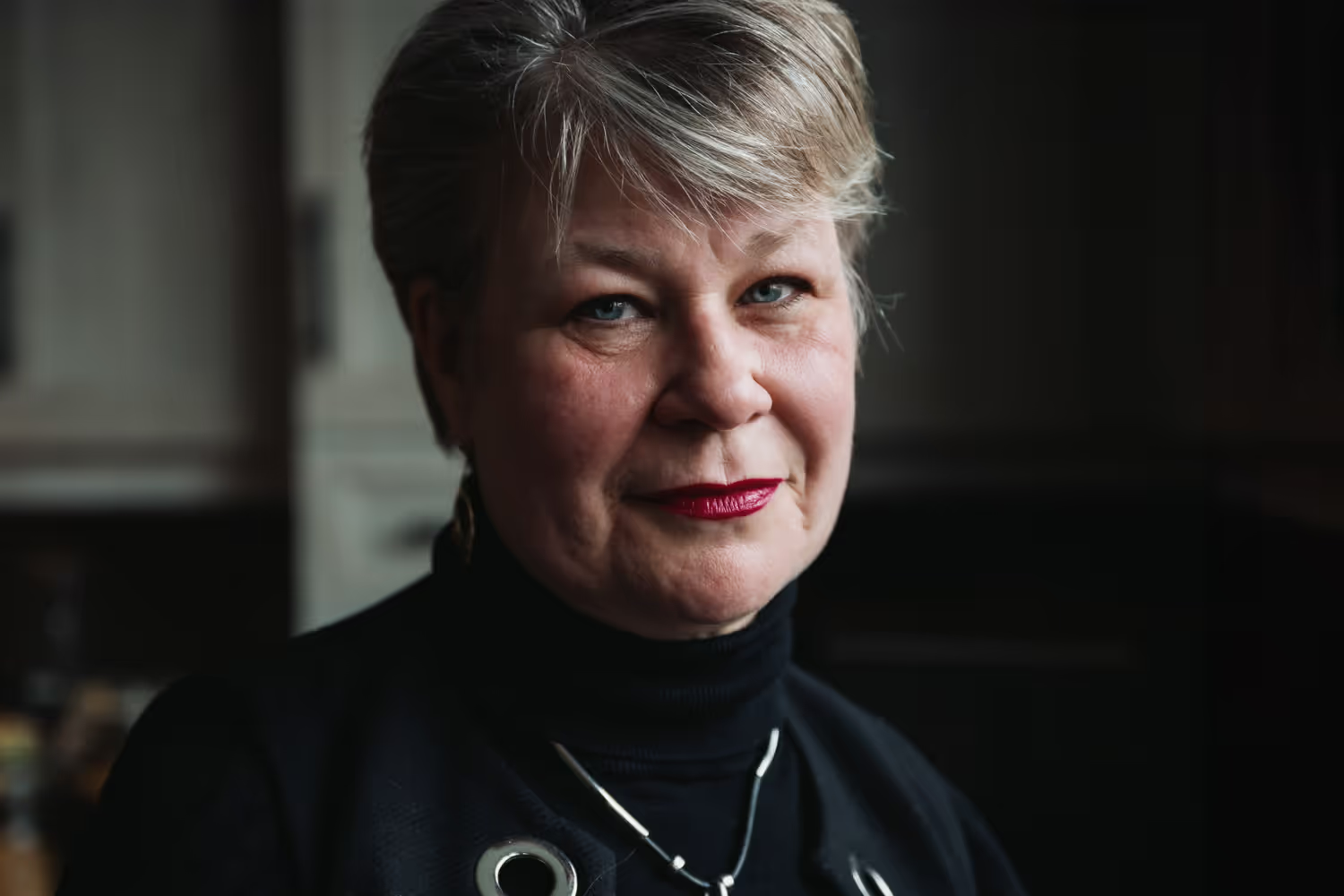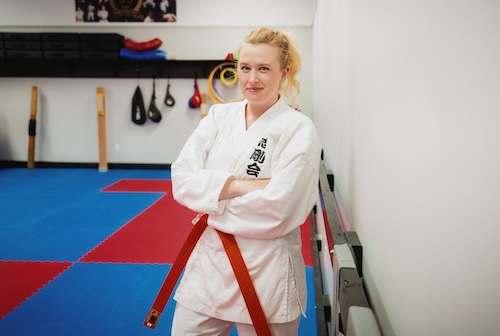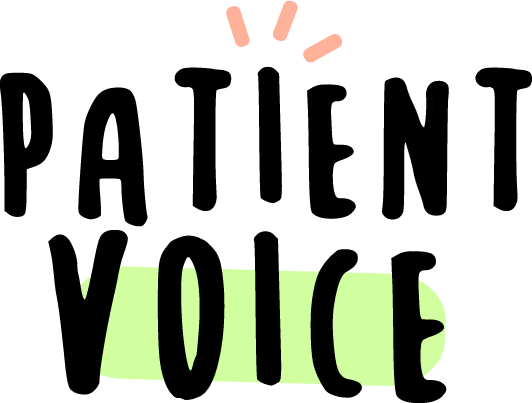“My mom is an incredible woman. Strong, energetic, positive, fun, loving. Extremely athletic and fiercely competitive throughout her life, she would regularly trounce her grandchildren at ping pong at the age of 80.
When my mom had a heart attack, she hitchhiked to the hospital. When anyone who knew her heard the story, they would nod and just say, ‘Of course she did.’
She has always been indomitable. She was there for me, rock-steady 30 years ago, when I spent 6 weeks in an ICU, had 8 operations in 23 days, and was given a 10% chance of surviving necrotizing fasciitis, or flesh-eating disease. She stood guard outside my hospital room, a gatekeeper with a single purpose — to keep me alive. No one entering my room could show anything but optimism. There would be no tears or talk of death. If you couldn’t hold it together when visiting me, you weren’t allowed in.
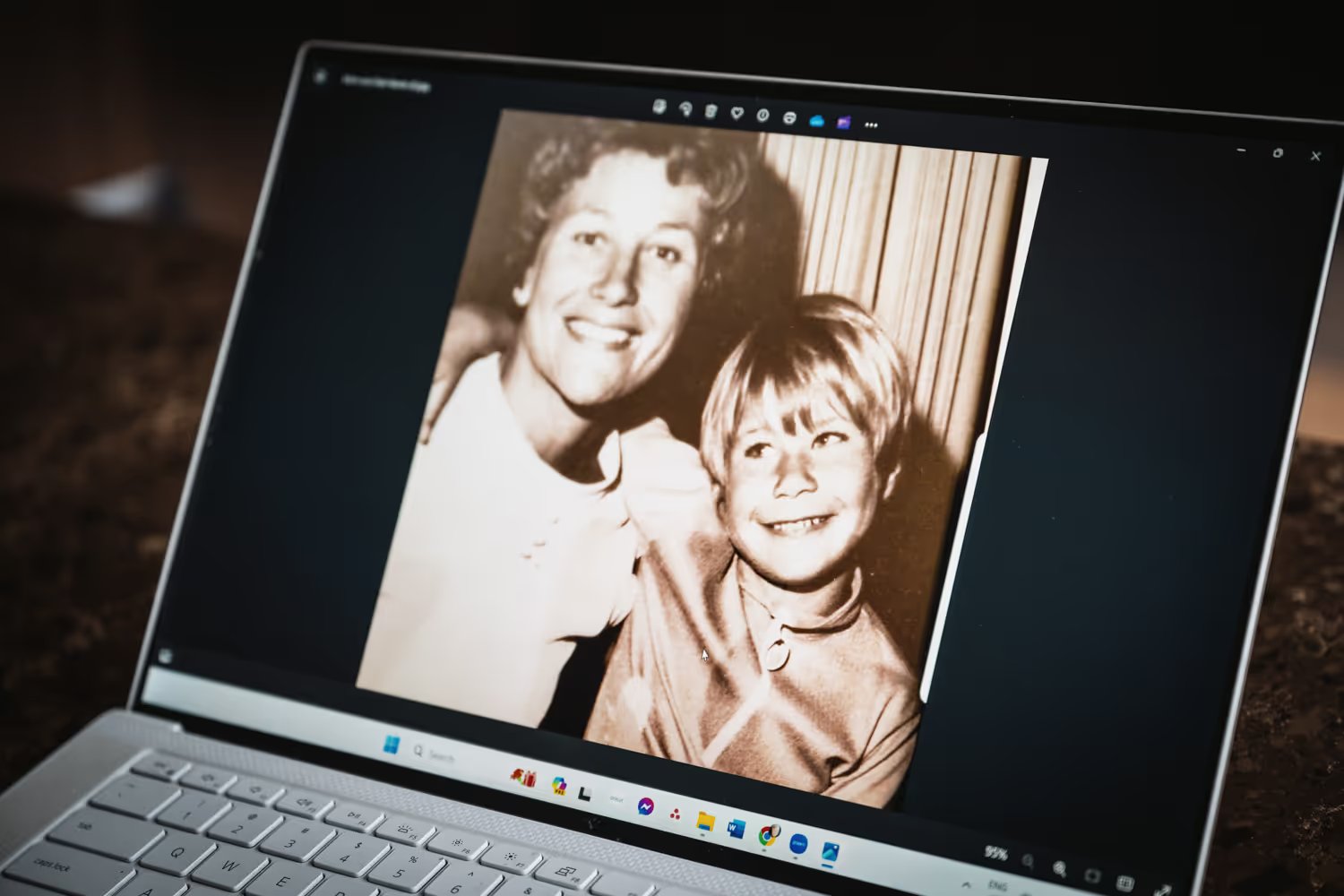
My mom was always the strongest one in the room but the tables have turned. Now it’s my turn to protect and fight for her because she has advanced vascular dementia. The disease has stolen most of her memories, physical and mental strength, and sense of hopefulness.
“One day she’s laughing and praising the beauty of the world, the next she’s hiding her belongings and convinced she’ll soon be homeless.”
It’s not always easy to reconcile the person she is with the person she was. Today, my mom is frail, mentally inconsistent, and emotionally unpredictable. Her kindness and adoration of the people she loves still shines through, but she is too often haunted by fear, delusions, hallucinations, and paranoia. One day she’s laughing and praising the beauty of the world, the next she’s hiding her belongings and convinced she’ll soon be homeless.
I’m doing my best to help her through this cruel transition. She trusts me now just as I trusted her when I was fighting for my life. However, this time there will be no happy ending. We both know how this will end. This is her final chapter. While her goal 30 years ago was to ensure I enjoyed a long and happy life, mine is to comfort and love her as she moves ever closer to the end of hers. Losing someone you love so completely to illness is painful. But losing the person who’s still right in front of you to the pain and anguish of dementia is excruciating.
.avif)
Last December, I received a call from the assisted living home where my mom was living. They told me she had been banging on doors, yelling at other residents, throwing things at the care team, and trying to get out of the building at 3 a.m. The person they described was unrecognizable to me.
I rushed to my mom at the hospital she’d been transferred to but as soon as she saw me, she pointed her finger at me and, with hatred in her eyes and voice, yelled, ‘That’s her! That’s the one. She’s trying to kill me and take my money. Call the police!’
“I was told to stay away from her because I was the trigger for the delusions, paranoia, and hallucinations haunting her. It was the hardest separation of my life.”
I was shocked and hurt. In that moment, my kind and courageous mom was scared, confused, and suffering the ultimate betrayal. Her broken brain was torturing her. My mom needed me more than ever, but she couldn’t stand the sight of me. I was told to stay away from her because I was the trigger for the delusions, paranoia, and hallucinations haunting her. It was the hardest separation of my life.
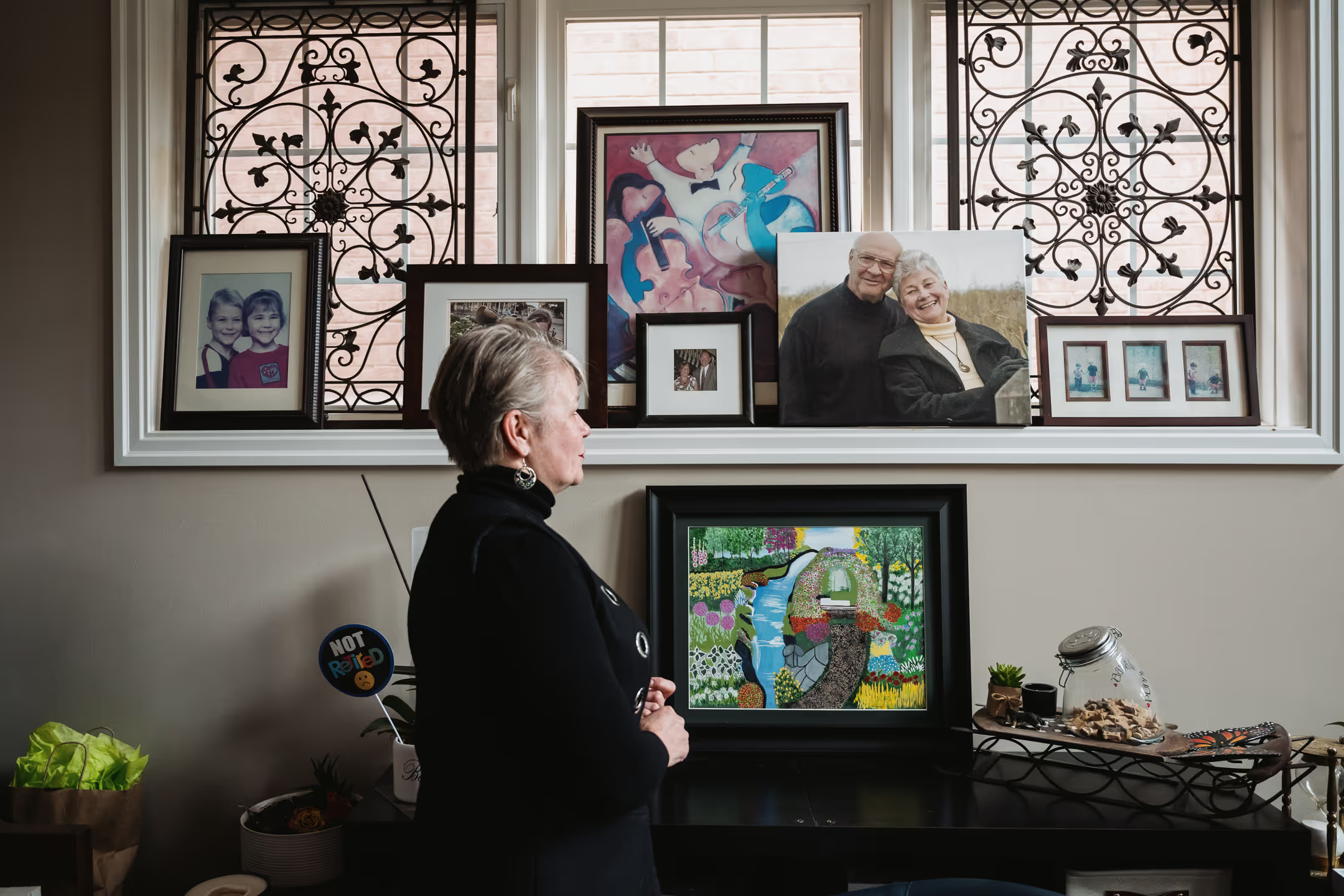
Although her brain is forever damaged and continues to deteriorate, medication did help calm her and recover her personality after the latest episode. But for two weeks, I didn’t know what to expect when I went to see her. One afternoon she told me how much she appreciated me and that I made her feel safe. Three hours later she yelled that I was ungrateful and a thief. Thankfully, the cruelty and aggression are gone, for now.
There are so many daily issues that are difficult. The hardest is when she asks, over and over again, where my dad is. Why hasn’t he visited? Does he have a girlfriend? Did he die? When she asks that last question, I can’t lie. She still has moments of absolute clarity and I will not break her trust. I gently tell her about their final days together and watch her heart break again and again.
So much of my life now revolves around helping my mom navigate a world that’s unfamiliar to her. It’s tough when her memory can’t be trusted, her emotions are erratic, and I feel her dignity needs to be protected. ‘I have dementia?’ she asked me in one lucid moment after reading some papers I had prepared for her doctors. ‘That’s so sad.’
Yes, mom, it really is so very sad.
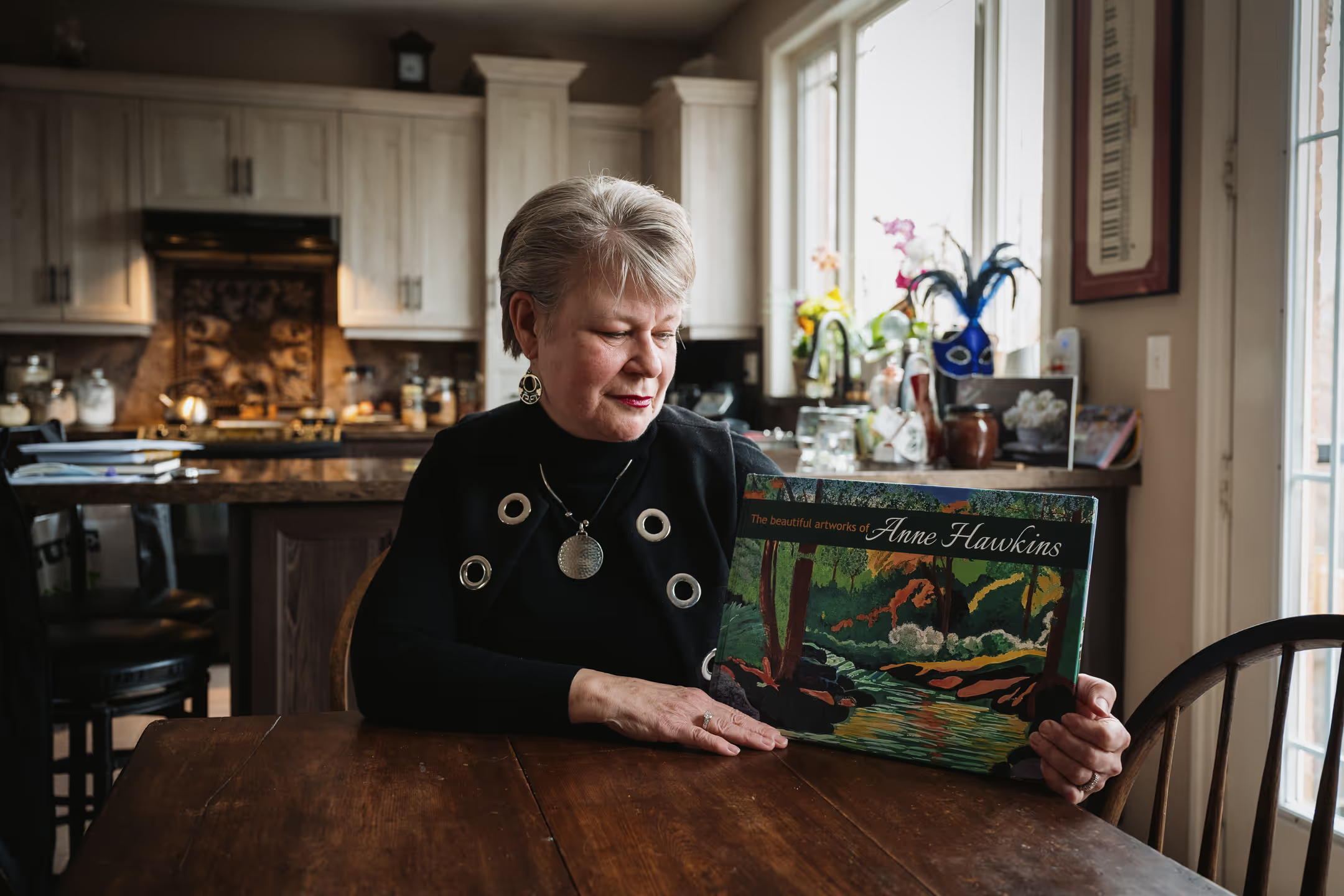
When my mom started showing signs of advancing dementia, I created a book with over 100 questions to help fill in details of her life. I knew how hard it would be to protect my memories of this beautiful woman from being overwritten by the trauma of what was surely to come.
Death is familiar to my family. We know how tortuous the final days can be. How dark memories can crowd out all recollection of the joy and beauty of the people we knew and loved. I think often of my sister who was brilliant, fun, and radiant. And yet, because she spent her final few weeks in a coma, I remember those images rather than scenes from the 44 amazing years we shared.
“Now I have this book about the people who helped shape my mom’s life, all seen through the eyes of the world’s greatest cheerleader.”
The book for my mom turned out to be more difficult and revealing than I imagined. The beauty of my mom’s heart shone brightly. Each time I asked her a question about herself, her answer transitioned to a story about how wonderful someone else was. She was always ready to find the best in everyone.
Now I have this book about the people who helped shape my mom’s life, all seen through the eyes of the world’s greatest cheerleader. Flipping through it, I reflect on how lucky I’ve been to have this extraordinary person beside me all my life.
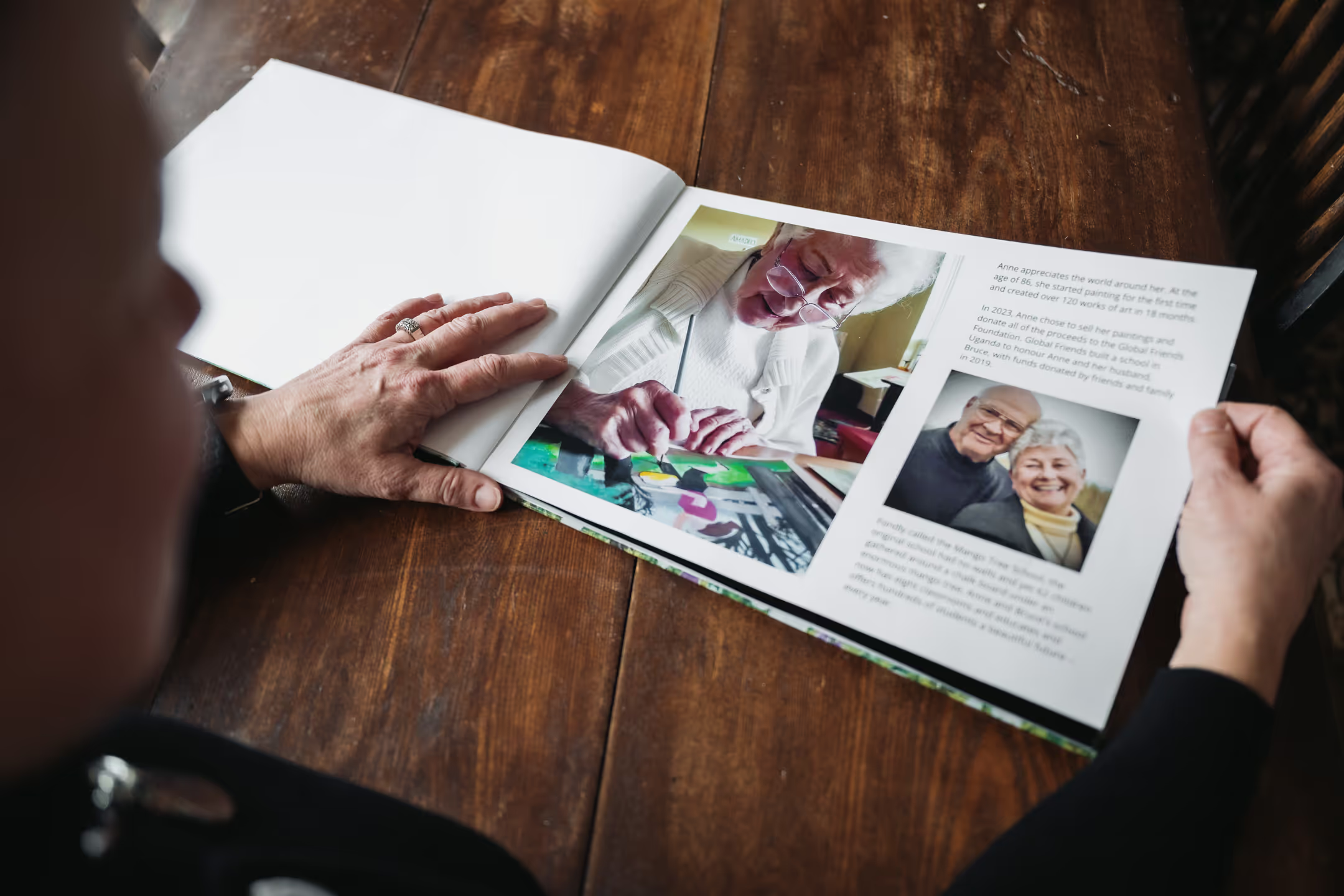
This sense of gratitude helps me through the daily fear, pain, and exhaustion that come with sharing my mom’s dementia journey. While we still have many good moments, her world is getting smaller and increasingly unfamiliar to her. There are too many times when she’s afraid and sad, lost and lonely. She’s frustrated that she can’t remember people and experiences. She’s unsteady because her body is weak. She misses my dad, who was beside her for 65 years. She’s in a constant state of confusion. And it’s only going to get worse.
I love the woman I continue to embrace every day. I see glimpses of the vibrant woman she was. I hear the familiar joys of my childhood in her laugh. I treasure the warmth of her touch. But I can’t help but miss the mom I’ve already lost. I curse the cruelty of dementia. I’m in a constant state of grief — caught between not wanting to lose my mom and knowing she’s already gone.”
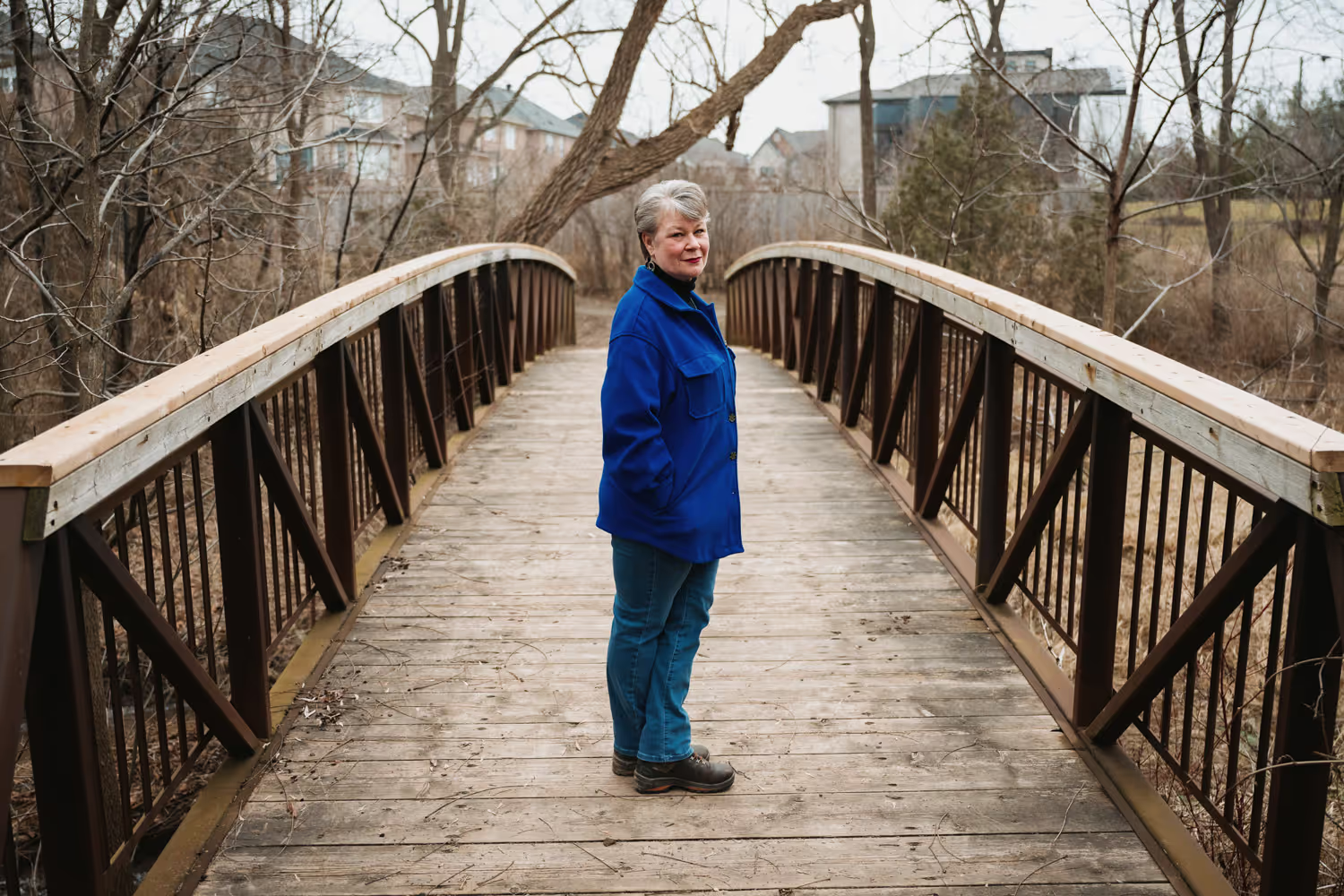
Free support is available for people living with dementia and caregivers in communities across Canada through your local Alzheimer Society. Visit www.alzheimer.ca/find to connect with help today.
